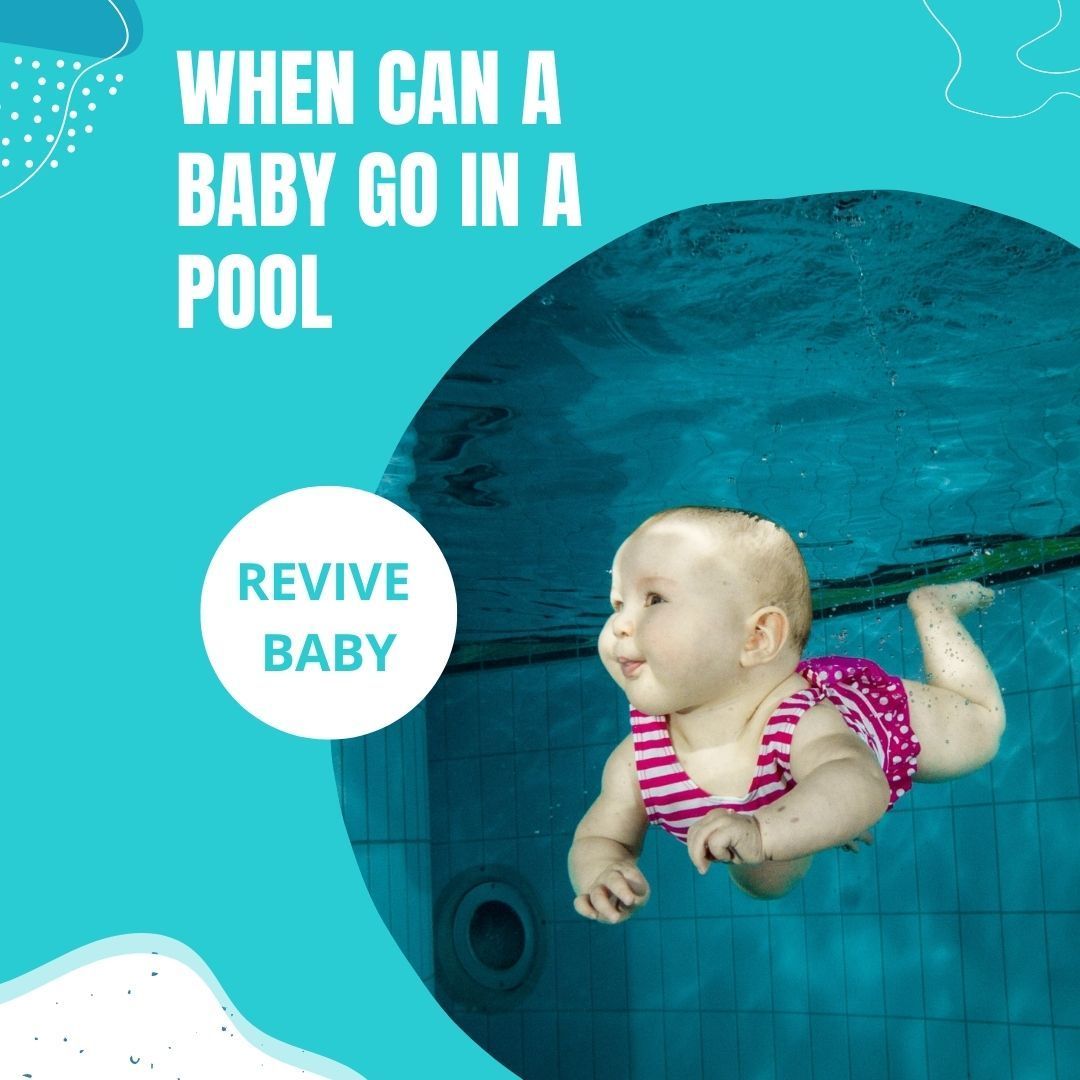Early swimming lessons increase a baby's confidence and, at the same time, reduce the risk of drowning. Due to these reasons, many parents want to introduce their children to water as soon as possible.
When Can A Baby Go In A Pool?
Introducing a baby to a pool is multifactorial and depends on the baby. You have to consider multiple factors that may affect your baby, such as chlorine in water and if the water is clean enough for your baby. So let's look at various factors that may affect your baby's exposure to the pool.
When To Take The Baby To The Pool For The First Time?
This is the most common concern of many parents, who may ask about the best time to take the baby to the pool for the first time. The ideal time for taking a baby to the pool is one year. However, when he is two months old, you can make the baby comfortable with water. Don't take your baby to the pool when they are two months old. Instead, fill the bathtub at home and keep them in it for 10 minutes.
Is Chlorine Pool Safe For Babies?
No chlorine pools are unsafe for babies, and it is not advised to take babies younger than one year old to chlorine pools. Babies' eyes and breathing passageways can get easily infected because of contamination and may also show allergic reactions to chlorine.
However, if your baby is not premature and doesn't show any allergic reaction to chlorine, you can also take them at six months old. Just rinse the chlorine from the body and apply a moisturizer afterward.
What Are The Benefits Of Swimming For Babies?
Swimming is a crucial life-saving skill and has many other benefits for babies. Some of the benefits of taking babies for a swim are
- It helps in the development of muscles.
- Babies can easily float in water and move freely, which helps develop their balance and coordination.
- The vestibular system becomes active because of swimming.
- It helps in avoiding food aversion and improves sleep patterns.
- Babies' cognitive functioning is improved.
- It increases their self-confidence
- If you are also swimming with your baby, then it will strengthen the bond between you and your child.
Can You Take Babies Swimming Before Vaccination?
Yes, you can take your baby swimming before vaccination. It doesn't matter if they're vaccinated; vaccination has no connection with swimming. Your baby may feel a little down because of the vaccination, but it's completely okay and will recover in one or two days.
If your baby feels little irritation and fever after vaccination, it is preferred not to take them swimming until they feel completely normal.
What Are The Precautions For Taking The Baby To The Pool?
Taking the baby for a swim is a recreational activity, and your baby will feel relaxed afterward. You will also get a chance to bond with your baby healthily, but there are some precautions that you must follow for your and your baby's safety. You must consider these few things when taking your baby for a swim.
Make Sure They Are Safe
One of the most important things you always consider is that you or your caretaker is near the baby, even if the water is not deep. Ensure to follow the safety advice the instructor or pool administration gives.
Keep A Check On The Time
It is unsafe for babies to change water for a long time to ensure that you check their water duration and that it doesn't exceed 30 minutes.
Check The Temperature
Check the water temperature and maintain it at 32 to 35° C. Your baby may get sick if the temperature is below or above that.
Coordinate With Feeding Time
Feeding time is one of the most important things you must consider before taking a baby to swim. Ensure you are taking your baby swimming after 1 hour of feeding time and not before that.
Make Them Comfortable
When introducing your baby to the water, keep them close to themselves and gently pour water on their face. When they start feeling comfortable, free them a little so they can float easily.
Use Sunscreen
One of the other important things you must consider is never to use sunscreen on a baby younger than six months. It may damage their skin; however, you can use sunscreen if your baby is older than six months. For babies younger than six months, you can introduce them to water in the bathtub or under shade.
Is It Safe To Take Babies Underwater?
It is completely safe to take a baby underwater, even if it is just one or two months old. Babies have a natural reflex known as the gag reflex. When you take your baby underwater, the soft tissue at the back of the throat will close automatically and prevent any water entry to the air passageway.
Babies also have another reflex known as bradycardia action, and because of this reflex, they move their hands and feet in a swimming motion in the water. Both reflexes will disappear at the age of six, so If you want to build this reflex, it is best to keep them underwater in the bathtub for 2 to 3 seconds when they are younger.
FAQs
Can I put my three-month-old in water?
Yes, if your baby is older than two months, then you can put them into the water but make sure that you are doing it in the bathtub and not in the public pools.
What can be the side effects of swimming?
The most common side effect of swimming in babies is rashes, dry skin, ear pain, and fever in babies. Some babies may develop chlorine allergy.
Conclusion
Many parents want to take their baby swimming as soon as possible because they want to develop crucial life-saving skills in their babies. If you also want to do the same but need clarification about when a baby can enter a pool, this article has all the necessary information and instructions.
Read this article early and follow all the guidelines to save your baby from any side effects or risks.









